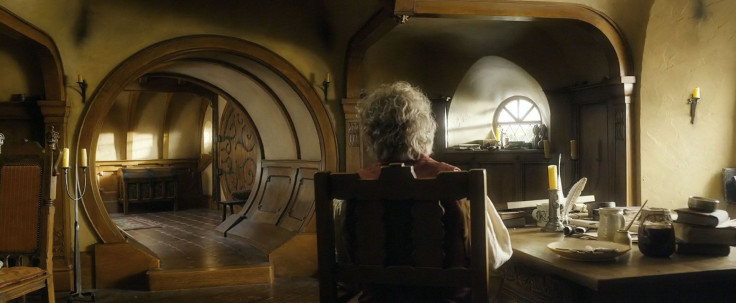There’s a word in The Lord of the Rings, introduced in The Fellowship of the Ring, that never got the credit and real-world wear and tear it deserves: mathom.
Described by J. R. R. Tolkien as “anything that Hobbits had no immediate use for, but were unwilling to throw away,” mathoms engaged and occupied Hobbit free time, though to less of a degree than our own product fixations. Perhaps this sounds familiar: “Their dwellings were apt to become rather crowded with mathoms, and many of the presents that passed from hand to hand were of that sort.”
But mathoms aren’t just useless knickknacks. Instead, the term encompasses an expansive view of possessions that span everything from the trinket to the treasure. While the baubles Hobbits gift from household to household are mathoms, so are the items inside museums. In The Shire, a museum is called a Mathom-House.
Whether they’re in a cupboard or on display, mathoms are mathoms. With their sprawling family households and interlocked community, the Hobbits are oriented a little more toward communal than private property. They’re hardly socialists — this is a dream of bucolic England — but they sure do love stealing spoons from each other. And so it wasn’t a great act of philanthropy that Bilbo displayed his Mithril chainmail in Michel Delving’s Mathom-House, but a natural extension of the different mentality evident in the word.
Our own language doesn’t have a satisfying analog. “Belongings” and “possessions” are so singular and tied to our ownership. Mathoms have an existence tied to, but distinct and independent from, their owners (“Mathoms” likeness with “atoms” hints at that). “Property” is legalistic and without a sense of the personality or investiture that makes mathoms suitable gifts and museum pieces. Our museums are not full of property. Our closest word, “stuff,” is more about avoiding categorization than characterizing anything at all. To call our stuff “stuff” is to deem it without category; people, materials, even activities can be made up of varieties of stuff.
Most usefully, for 2017’s purposes, mathom provides an alternative to the dominant organizing principle of the decade: decluttering. If you didn’t hear of Marie Kondo when The Life-Changing Magic of Tidying Up: The Japanese Art of Decluttering and Organizing came out in 2014 (in the United States), then you may have heard of her when she was named to Time ’s “100 Most Influential People” in 2015. And if not there, what about from Emily Gilmore? Whatever, even without the name, the method’s already become a la-di-da, upper class cliché: throw out anything that doesn’t spark joy in you.
In some ways Kondo’s view of possessions overlaps with the Hobbits and their mathoms. Both regard an item’s utility as central to whether or not it should stick around (though joy is more imprecise than “immediate use”). And whether it’s a desirable state or not, both views acknowledge how much personal attachment we develop with things.
Yet, Hobbits love clutter. Many humans do too. The thought of purging a bookshelf, for example, might give you angry shivers. It doesn’t matter if it’s messy! Everyone should have several different copies of the same book with different paperback covers! Where the Kondo method encourages purging and decluttering, the Hobbits and their mathoms find their own equilibrium. Hobbits don’t mind the mess.
Mathoms sit nicely between the impersonal and the emotional. Our stuff is more than property. But should our relationship with possessions impinge on too-human sentiments, such as joy, respect and considering how our clothes feel? Mathoms can be treasures too, but they don’t ape human relations, as we’re so often encouraged to do with our belongings.
And it’s just fun to say. Mathoms.
Not many science fiction and fantasy coinages slip into everyday language. Robots, maybe. Cyberspace. We all heard a lot of “khaleesi” this election season. But, mostly, fictional language stays fictional. Some words because they sound so fake, like droog and frood — though I’m still convinced Qapla’ can be anglicized. And none of those swear words are ever going to land (but frell > frak any day). Give mathom a try anyway. It’s a small word, for small distinctions. And we do have a lot of stuff to describe.


















